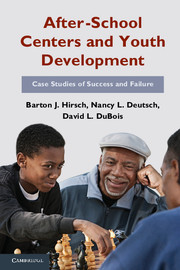Book contents
- Frontmatter
- Contents
- Figure and Tables
- Preface
- Introduction
- Midwest Center
- 2 Pockets of Excellence
- 3 Pocahontas Joins the Tribe
- 4 Bill: The Pros and Cons of Being One of the Guys
- 5 Putting It All Together: Midwest Center
- North River Center
- West River Center
- Conclusion
- Appendix Data Sources
- References
- Index
3 - Pocahontas Joins the Tribe
Published online by Cambridge University Press: 05 June 2012
- Frontmatter
- Contents
- Figure and Tables
- Preface
- Introduction
- Midwest Center
- 2 Pockets of Excellence
- 3 Pocahontas Joins the Tribe
- 4 Bill: The Pros and Cons of Being One of the Guys
- 5 Putting It All Together: Midwest Center
- North River Center
- West River Center
- Conclusion
- Appendix Data Sources
- References
- Index
Summary
We knew from the start that Pocahontas should be in our study. Before we had any idea what the story of her year would tell, what changes – good or bad – might take place, we understood that we had to find a place for her in our research. Lively and vivacious one moment, sullen the next, the moody Pocahontas had one of the most stressful family backgrounds of any young person who attended the after-school centers. There was little doubt in our minds: Pocahontas would be a challenge for club staff. She was full of potential, yet at high risk for a host of bad outcomes, and we suspected that there would be a lot to learn from the experiences of this 14-year-old Latina girl. As it turned out, Pocahontas made dramatic gains, and her tale provides a compelling illustration of the boost that after-school programs can provide to troubled youth. Among the stories we will tell in this book, Pocahontas’s is particularly revealing of the synergistic effects of programs, activities, and mentoring in a comprehensive after-school center. Pocahontas became extremely well integrated into the life of the center – she “joined the tribe” – and the security of that attachment provided a critical anchor for resilience and growth.
- Type
- Chapter
- Information
- After-School Centers and Youth DevelopmentCase Studies of Success and Failure, pp. 63 - 91Publisher: Cambridge University PressPrint publication year: 2011



